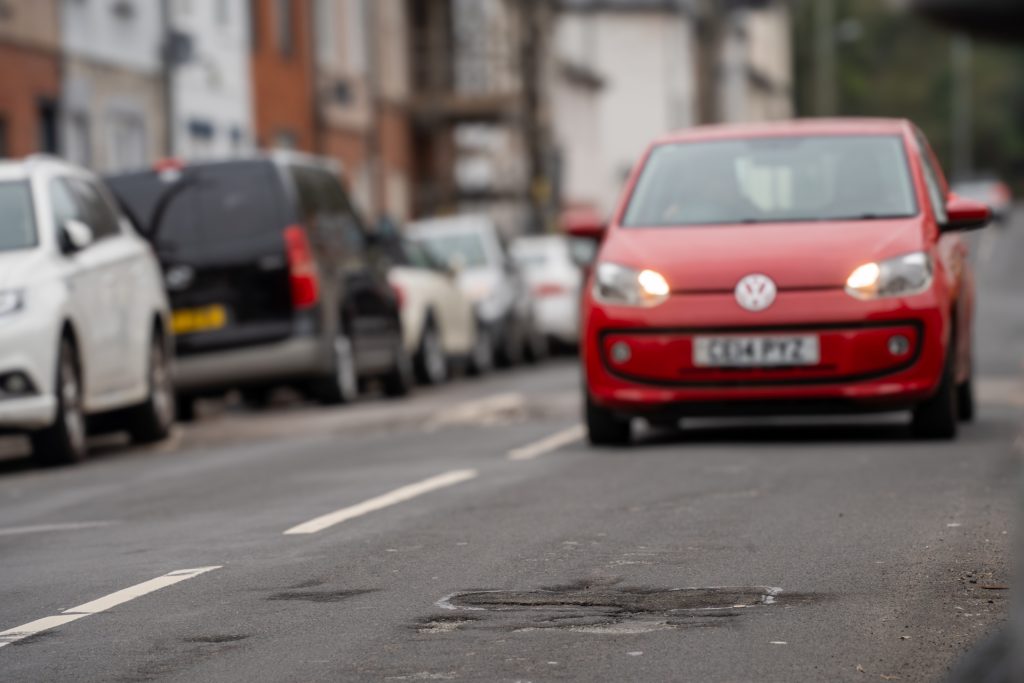It’s £735 each — and the council will receive £4.5m to help clear its road repairs backlog
EACH pothole reported in the Vale of Glamorgan last year cost an average of £735 to fix, according to a Freedom of Information request sent to the council.
The local authority spent £1.96 million on pothole and pavement repairs in 2024, with 2,666 potholes reported in the same period.
“It’s a bloody shambles,” said Warren Jones, 54, of Cogan. “I grew up in this area and the roads have been as bad now as ever. You’re dodging potholes from the moment you pull out of your street. It’s like they come round, patch up half of it, and leave the rest to fall apart again.”
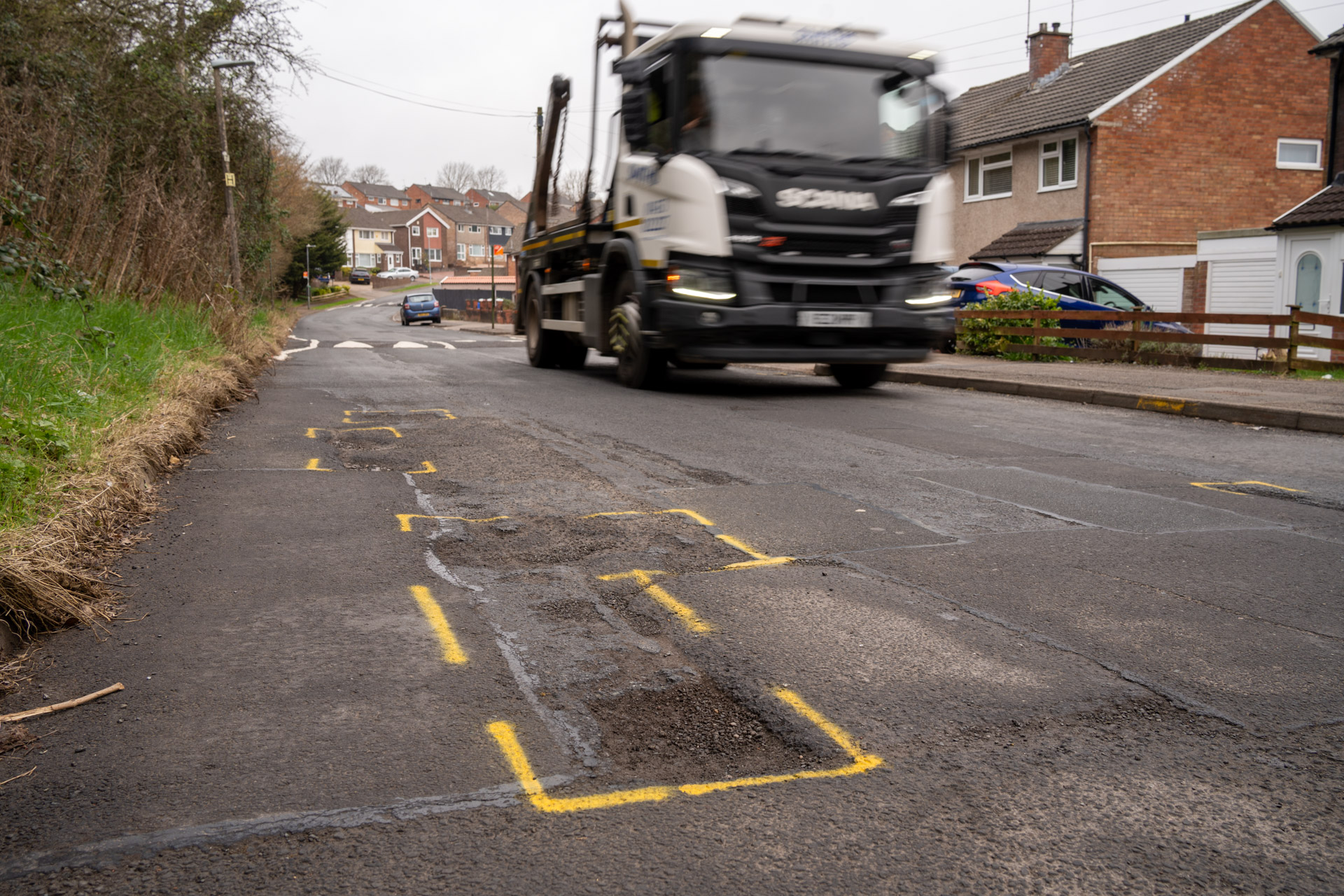
Vale council is set to receive £4.5 million over the next two years to resurface local roads, as part of a major Welsh Government scheme designed to tackle the backlog in highway maintenance.
The funding comes through the Local Government Borrowing Initiative — a £120 million programme rolled out across Wales.
A total of 3,893 potholes were reported in 2023, followed by 2,666 in 2024 — both well above pre-lockdown levels. More than 500 further potholes were reported in January and February this year alone.
Repair times have improved. In 2022, non-urgent defects took an average of 71 days to resolve. By 2024, that had dropped to 24 days. Urgent repairs are typically handled within three days.
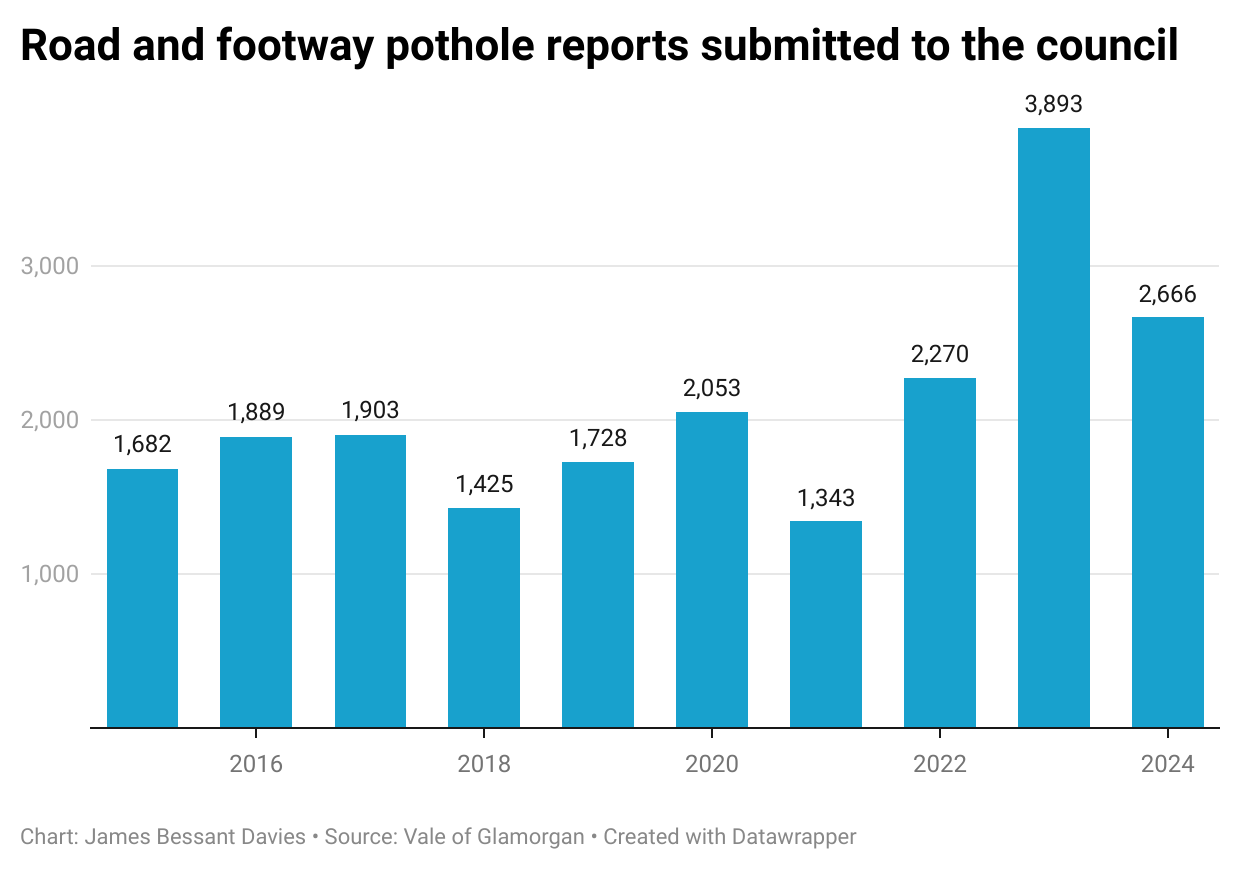
The Vale’s spending on pothole repairs peaked in 2023 at £2.38 million, falling slightly last year. Costs include labour, inspections, materials, and contractor fees. Compensation payouts to drivers with damaged vehicles have decreased from £7,361 in 2022 to £1,346 in 2024.
Councillor Elliot Penn, Mayor of the Vale, said the council used a points-based system to ensure fairness across the area.
“This is how work and funds are allocated. If members of the public report an issue with a road or pavement, this helps with its points scoring towards the threshold level. No ward would be prioritised over another,” he said.
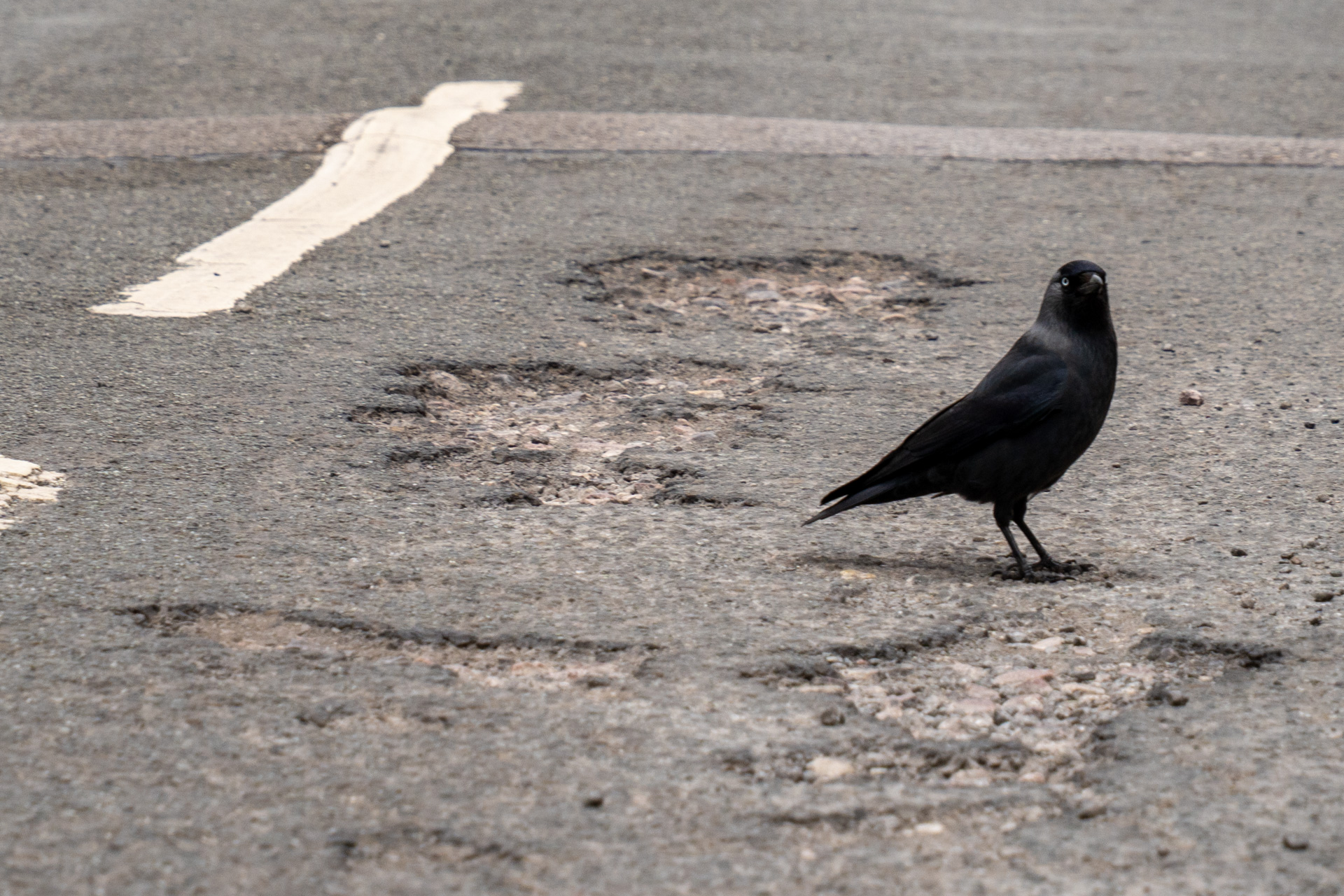
He encouraged residents to report defects directly, either online or through their local councillor.
“The Council has four inspectors that inspect the highways all year round and raise repair works where necessary. With a lot of ground to cover, we rely on defects being reported to us.”
Once a report is received, the council assesses the severity of the defect, taking into account size, location, traffic speed and volume.
“We aim to repair potholes within 28 days, or within 24 hours if the defect is identified as high risk,” said Cllr Penn.
Residents can track progress and receive updates via the council’s pothole reporting portal: valeofglamorgan.gov.uk/potholes.
Welsh local authorities are not subject to strict new rules requiring English councils to publish annual pothole progress reports or risk losing part of their funding.
“British people are bored of seeing their politicians aimlessly pointing at potholes with no real plan to fix them. That ends with us,” said Prime Minister Sir Keir Starmer.
Read more:
- Motorist fined £1,014 for going 6mph over the 20mph speed limit
- A look at the joys of bellringing – a hidden British tradition
- NHS worker’s car stolen as criminals target luxury vehicles in Penarth
In contrast, the Welsh Government has opted for a longer-term strategy. Welsh Transport Secretary Ken Skates recently announced a separate £25 million programme to resurface an additional 100km of road and prevent 30,000 future potholes.
“It is crucial that we fix our roads,” said Mr Skates.
“I’m delighted to be announcing a further £25 million of funding to help support a comprehensive refurbishment programme to improve the future resilience of our strategic roads network and prevent potholes.”
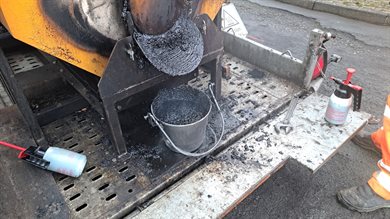
In January 2025, the Vale council began trialling a new eco-friendly road repair material called Elastomac, which uses recycled tyres to reduce the carbon impact of patch repairs by up to 85%.
Trials began in Wenvoe as part of the council’s Project Zero pledge to reach carbon neutrality by 2030.
LEFT: Elastomac being used. Credit: Vale of Glamorgan
“Maintaining and repairing our roads in sustainable ways is vital in ensuring that our work has as little impact on the environment as possible,” said Councillor Mark Wilson, Vale of Glamorgan cabinet member for Neighbourhood and Building Services.
Despite the fresh investment, councils across Wales face a road repair backlog approaching £1 billion. The Welsh Local Government Association has warned that many authorities are still being forced to prioritise quick patch-ups over longer-term resurfacing due to funding constraints.
“Highway maintenance is a statutory duty, but councils are being forced to prioritise urgent patch-ups over long-term resurfacing,” said a WLGA spokesperson.
“Without a shift in investment, roads will continue to decline.”
The Vale has not confirmed which roads will be resurfaced under the £4.5 million programme but many residents — particularly in areas like Barry, Llantwit Major and Penarth — will be watching closely to see where improvements are made.
